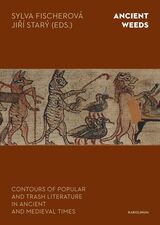
The common story in literary studies is that the emergence of popular and junk literature is related to the emergence of modern society due to the rise of literacy and the shortening of workdays. Ancient Weeds upends this misconception by demonstrating that antiquity had its fair share of literary pieces that fit the definition of popular, trivial, and junk literature. The authors analyze artifacts such as the ancient Egyptian Turin Papyrus, ancient love novels, Christian hagiographies and passion plays, lives of Jesus and Marian hymns, Byzantine parodies of liturgical procedure, Old Norse tales and lying sagas, Arabic maqams, and Spanish blind romances. Through numerous excerpts, it becomes clear that the line between junk and high literature is thinner than it seems. They reveal how seemingly low themes such as sex and violence often overlap with the themes of high literature. In many cases, low literature is more imaginative and subversive than canonical texts, and bizarreness and non-conformity do not necessarily equate to the ephemerality of a work. As Ancient Weeds shows, thousands of years after it was written, low literature can still be a great source of entertainment today.
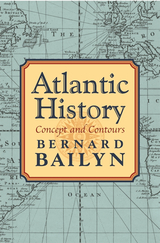
Atlantic history is a newly and rapidly developing field of historical study. Bringing together elements of early modern European, African, and American history--their common, comparative, and interactive aspects--Atlantic history embraces essentials of Western civilization, from the first contacts of Europe with the Western Hemisphere to the independence movements and the globalizing industrial revolution. In these probing essays, Bernard Bailyn explores the origins of the subject, its rapid development, and its impact on historical study.
He first considers Atlantic history as a subject of historical inquiry--how it evolved as a product of both the pressures of post-World War II politics and the internal forces of scholarship itself. He then outlines major themes in the subject over the three centuries following the European discoveries. The vast contribution of the African people to all regions of the West, the westward migration of Europeans, pan-Atlantic commerce and its role in developing economies, racial and ethnic relations, the spread of Enlightenment ideas--all are Atlantic phenomena.
In examining both the historiographical and historical dimensions of this developing subject, Bailyn illuminates the dynamics of history as a discipline.

Geographic knowledge generated for the Cold War was a form of power, Farish argues, and it was given an urgency in the panels, advisory boards, and study groups established to address the challenges of an atomic world. He investigates how the scales of the city, the continent, the region, the globe, and, by extension, outer space, were brought together as strategic spaces, categories that provided a cartographic orientation for the Cold War and influenced military deployments, diplomacy, espionage, and finance.
Farish analyzes the surprising range of knowledge production involved in the project of claiming and classifying American space. Backed by military and intelligence funding, physicists and policy makers, soldiers and social scientists came together to study and shape the United States and its place in a divided world.
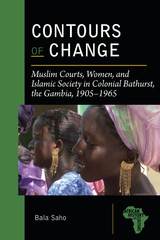


The anthology challenges undifferentiated, stereotypical images of South Asians in North America, portraying instead the subtleties of their varied, sometimes invisible experiences. It includes fiction, poetry, essays, and photography.
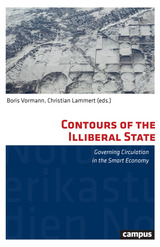
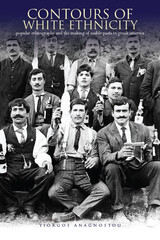
In Contours of White Ethnicity, Yiorgos Anagnostou explores the construction of ethnic history and reveals how and why white ethnics selectively retain, rework, or reject their pasts. Challenging the tendency to portray Americans of European background as a uniform cultural category, the author demonstrates how a generalized view of American white ethnics misses the specific identity issues of particular groups as well as their internal differences.
Interdisciplinary in scope, Contours of White Ethnicity uses the example of Greek America to illustrate how the immigrant past can be used to combat racism and be used to bring about solidarity between white ethnics and racial minorities. Illuminating the importance of the past in the construction of ethnic identities today, Anagnostou presents the politics of evoking the past to create community, affirm identity, and nourish reconnection with ancestral roots, then identifies the struggles to neutralize oppressive pasts.
Although it draws from the scholarship on a specific ethnic group, Contours of White Ethnicity exhibits a sophisticated, interdisciplinary methodology, which makes it of particular interest to scholars researching ethnicity and race in the United States and for those charting the directions of future research for white ethnicities.
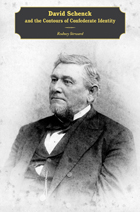
A mid-level Confederate official and lawyer in secessionist North Carolina, David Schenck (1835–1902) penned extensive diaries that have long been a wellspring of information for historians. In the midst of the secession crisis, Schenck overcame long-established social barriers and reshaped antebellum notions of manhood, religion, and respectability into the image of a Confederate nationalist. He helped found the revolutionary States’ Rights Party and relentlessly pursued his vision of an idealized Southern society even after the collapse of the Confederacy. In the first biography of this complicated figure, Rodney Steward opens a window into the heart and soul of the Confederate South’s burgeoning professional middle class and reveals the complex set of desires, aspirations, and motivations that inspired men like Schenck to cast for themselves a Confederate identity that would endure the trials of war, the hardship of Reconstruction, and the birth of a New South.
After secession, Schenck remained on the home front as a receiver under the Act of Sequestration, enriching himself on the confiscated property of those he accused of disloyalty. After the war, his position as a leader in the Ku Klux Klan and his resistance to Radical Reconstruction policies won him a seat on the superior court bench, but scathing newspaper articles about his past upended a bid for chief justice of the North Carolina Supreme Court, a compelling fall from grace that reveals much about the shifting currents in North Carolina society and politics in the years after Reconstruction. During the last twenty years of his life, spent in Greensboro, Schenck created the Guilford Battleground Company in an effort to redeem the honor of the Tar Heels who fought there and his own honor as well.
Schenck’s life story provides a powerful new lens to examine and challenge widely held interpretations of secessionists, Confederate identity, Civil War economics, and home-front policies. Far more than a standard biography, this compelling volume challenges the historiography of the Confederacy at many levels and offers a sophisticated analysis of the evolution of a Confederate identity over a half century.
Rodney Steward is an assistant professor of history at the University of South Carolina, Salkehatchie. His works have appeared in the Virginia Magazine of History and Biography, Encyclopedia of North Carolina, and North Carolina Historical Review.
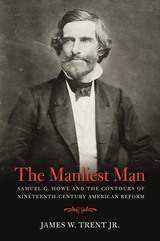
Always quick to refer to himself as a liberal, Howe embodied the American Renaissance's faith in the perfectibility of human beings, and he spoke out in favor of progressive services for disabled Americans. A Romantic figure even in his own day, he embraced a notion of manliness that included heroism under fire but also compassion for the underdog and the oppressed. Though hardly a man without flaws and failures, he nevertheless represented the optimism that characterized much of antebellum American reform.
The first full-length biography of Samuel G. Howe in more than fifty years, The Manliest Man explores his life through private letters and personal and public documents. It offers an original view of the reformer's personal life, his association with social causes of his time, and his efforts to shape those causes in ways that allowed for the greater inclusion of devalued people in the mainstream of American life.
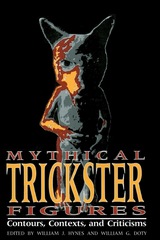
The first substantial collection of essays about the trickster since 1955
Mythical Trickster Figures, is the first substantial collection of essays about the trickster to appear since Radin’s 1955 The Trickster. Contributions by leading scholars treat a wide range of manifestations of this mischievous character, ranging from the Coyote of the American Southwest to such African figures as Eshu-Elegba and Ananse, the Japanese Susa-no-o, the Greek Hermes, Christian adaptations of Saint Peter, and examples found in contemporary American fiction and drama.
The many humorous trickster stories included are fascinating in themselves, but Hynes and Doty also highlight the wide range of features of the trickster—the figure whose comic appearance often signifies that the most serious cultural values are being both challenged and enforced.

READERS
Browse our collection.
PUBLISHERS
See BiblioVault's publisher services.
STUDENT SERVICES
Files for college accessibility offices.
UChicago Accessibility Resources
home | accessibility | search | about | contact us
BiblioVault ® 2001 - 2024
The University of Chicago Press









